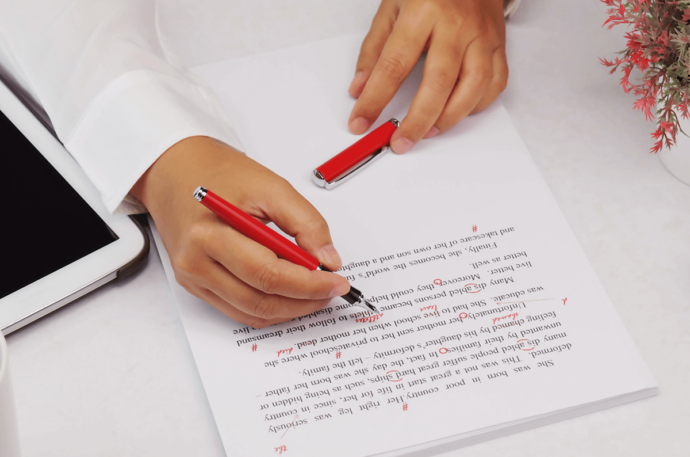The essay is your opportunity to show that you understand the topic well, have a good grasp of what you have read, and can apply it originally. Originality doesn’t necessarily mean invention, but putting a fresh spin on existing ideas and relating them to your own experience.
But how to create your very own masterpiece? Here we will tell you about the most important parts, from scratch to ready essay.
1. Brainstorming
Brainstorming is a thinking technique that allows you to gather and organize ideas before you begin writing your essay. It can help you come up with new ideas and also whittle down your existing ones into a more concise, logical structure.
It’s a great way to get creative, and can also be a calming activity that helps you avoid stress. It is commonly used in all creative areas – from said essays to rocket science.
When you think of brainstorming, you may picture a group of people enthusiastically tossing around ideas together. Scenes from Hollywood movies might come to mind, with coffee cups, half-eaten snacks, and sticky notes scattered across the table.
While this kind of collaborative brainstorming can be helpful, it’s generally a good idea to do the majority of your brainstorming alone, tells us writer from https://en.ibuyessay.com/college.html.
This will give you more control over when your ideas appear, and it will also allow you to take the time to think deeply about each one. Also, the essay is your piece – so it needs to be thought through.

Source: readytrainingonline.com
There are a few different ways to brainstorm ideas for an essay. One popular method is to write down all the ideas that come into your head, even if they seem silly or obvious.
This can help you organize your thoughts, and it’s also been proven that writing things down stimulates the brain and can lead to more original ideas.
Another technique is to use a word bank, which is a collection of words related to the topic that you’re brainstorming about. For example, if you’re brainstorming about your life experiences, a word bank might include words like parents, school, friends, love, pets, and so on.
This can be a useful tool for identifying keywords and phrases that might be used in your essay.
Regardless of which method you choose, it’s important to remember that brainstorming is only one part of the essay writing process. It’s also important to do research and then write a draft. Once you’ve done these steps, you can revise and polish your essay for final submission.
2. Research and plan

Source: science.org
Essay writing allows learners to develop their research and reasoning skills. They can find facts and opinions from a range of sources, such as books, articles, magazines, and the almighty Internet. The key to successful essay writing is to demonstrate that you have done your research and that you can select, interpret, and logically explain the information.
This will help you to develop your argument and to support your conclusion.
Some people plan their essays by reading the questions from books and then deciding how they are going to answer them. Others prefer to write their summary or outline first and then fill in the gaps. Whichever method you choose, the plan should be clear and well-organized to make your essay easy for the marker to read.
The logical progression of your arguments will also be important, so consider the marker’s perspective when you are choosing what to include in your essay.
Once you have your plan, start to think about what evidence you might need to back up your argument. Your research will provide you with a variety of different information on the topic, and it is up to you to decide what is relevant and not relevant for your essay.
You will need to cite any material that you have used so that your marker can easily identify where you have found the information and how you have interpreted it.
In addition, your essay may need to follow specific referencing and formatting guidelines, such as those set out by the APA, MLA, Chicago, AMA, or Harvard style guides. Check with your teacher or subject guide for more details.
A lot of people advise to format from the start so it will be easier at the end.
3. Writing

Source: entrepreneur.com
Essay writing is an essential skill for students from middle school up through graduate school. It is a form of writing that will allow you to display your knowledge on a particular subject as well as your own opinions and thoughts. It is not always easy to write an essay, but there are some things that you can do to make it easier for yourself.
One of the most important skills that you can learn is how to structure your essay.
This is something that will take some practice, but once you have it down it can help make your essay much more effective. Essays should be structured in paragraphs, with each paragraph addressing one topic or point.
It is also important to have an introduction and a conclusion. This will help your reader follow along and understand what you are trying to say.
You will also need to provide some supporting evidence for your essay. This can be done in a variety of ways, depending on what type of evidence you are using.
For example, if you are writing about a theory, then you may want to use case studies or examples from real life. This will help to support your argument and will demonstrate that you have a strong understanding of the topic.
Use your plan from the step above and fill in the gaps. Be clear, concise, and honest. It is important to remember that your essay should have some personality and character. Try to give your essay the same type of personality and character that you would like it to have or that you already have.
4. Proofreading

Source: flexjobs.com
The proofreading stage is the final step in the essay-writing process. It focuses on making minor corrections to spelling, grammar, and punctuation; it also ensures that you have followed the style guidelines for your essay type.
A quality essay requires careful proofreading to eliminate grammatical errors and typos. However, it’s quite improbable that you will spot every error on your first reading, especially if you are not accustomed to editing your work.
It’s therefore a good idea to have someone else read your essay before you submit it for assessment, as their fresh eyes may be more likely to notice mistakes that you have overlooked. You can also use the online grammar checker or the built-in in your text editor.
When proofreading your essay, it is important to read it out loud. This allows you to hear how the words are pronounced and can make it easier to identify problems such as missing commas or awkward phrases.
Whether you are a student, a professional, or an author, it is essential to master the art of essay writing. Following the tips outlined in this article will help you to create an excellent essay that will impress your audience and receive the highest grades possible.




